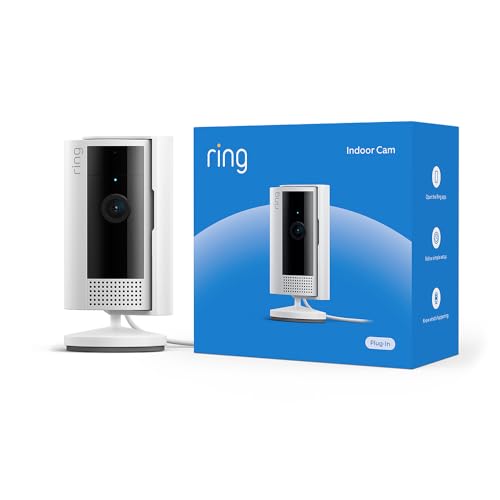




Home security cameras have become an essential part of modern home security systems, providing homeowners with a sense of safety and peace of mind. However, one common concern that many people have is how much data these cameras use.
The amount of data a home security camera uses can vary depending on several factors, such as the camera’s resolution, frame rate, and whether it records continuously or only when motion is detected. Understanding how much data your security camera uses is important, especially if you have limited internet bandwidth or are concerned about exceeding data caps.
By knowing the data usage of your home security camera, you can make informed decisions about your internet plan and how you use your camera to ensure that your home remains secure without facing any unexpected data overage charges.
The Importance of Data Usage in Home Security Cameras
Home security cameras are essential for protecting your property and loved ones. They provide a sense of security and peace of mind, allowing you to monitor your home even when you are away. However, one important factor to consider when using home security cameras is data usage.
Why Data Usage is Important
Home security cameras rely on data to transmit video footage to your smartphone or computer. The amount of data used depends on several factors, including the resolution of the camera, the frame rate, and the length of time the camera is recording. High-resolution cameras with continuous recording will consume more data compared to lower-resolution cameras with motion detection.
Monitoring your data usage is crucial to avoid exceeding your data plan limits and incurring additional charges. It is essential to choose camera settings that balance video quality with data usage to ensure smooth operation without compromising on security.
Managing Data Usage
To manage data usage effectively, consider the following tips:
| Tip | Description |
|---|---|
| Adjust Camera Settings | Optimize camera settings to reduce data consumption. Lowering the resolution or adjusting the recording schedule can help minimize data usage. |
| Use Wi-Fi Connection | Connect your security camera to a Wi-Fi network to avoid using cellular data. This can help reduce data usage and ensure a stable connection. |
| Monitor Data Usage | Regularly check your data usage to track how much data your security camera is consuming. This can help you adjust settings as needed and avoid exceeding your data limits. |
By understanding and managing data usage in home security cameras, you can ensure efficient operation and reliable monitoring of your property, enhancing your overall security measures.
Understanding Data Consumption in Security Cameras
When it comes to home security cameras, understanding data consumption is crucial. The amount of data a security camera uses depends on various factors such as video quality, frame rate, recording duration, and whether the camera is continuously streaming or only activated by motion detection.
High-definition cameras with 1080p resolution will consume more data compared to cameras with lower resolutions. Similarly, cameras that record at a higher frame rate will use more data per second of footage.
Continuous streaming cameras will consume more data as they are constantly uploading video to the cloud or local storage. On the other hand, cameras that only record when motion is detected will use less data overall.
It’s essential to consider your internet data plan when installing security cameras, as high data consumption can lead to additional costs or throttling of your internet speed. By understanding these factors, you can optimize your security camera setup to balance data consumption and surveillance needs.
Factors Affecting Data Usage
Several factors can affect the amount of data used by a home security camera system:
- Resolution: Higher resolution cameras consume more data than lower resolution ones.
- Frame rate: Cameras recording at a higher frame rate will use more data compared to those with a lower frame rate.
- Compression: The type of compression used can impact data usage. Cameras using efficient compression algorithms will use less data.
- Duration of recording: Cameras that record continuously will consume more data than those set to record only when motion is detected.
- Number of cameras: The more cameras in the system, the higher the overall data usage.
- Quality settings: Adjusting the quality settings of the cameras can impact data usage. Lowering the quality may reduce data consumption.
Optimizing Data Consumption in Home Security Cameras
Home security cameras are an essential tool in keeping your home safe, but they can also consume a significant amount of data. To optimize data consumption and ensure efficient use of your home security camera system, consider the following tips:
1. Adjust Video Quality Settings
- Lowering the video quality of your security camera footage can significantly reduce data consumption. Most cameras allow you to adjust the resolution and frame rate to find a balance between image quality and data usage.
2. Set Up Motion Detection
- Instead of recording continuously, set up motion detection on your security cameras. This way, the cameras will only start recording when motion is detected, saving data on unnecessary footage.
By implementing these tips, you can optimize data consumption in your home security cameras without compromising on the safety and security of your home.
Comparison of Data Usage Among Different Camera Models
When it comes to home security cameras, data usage can vary significantly depending on the model and settings. Here is a comparison of data usage among different camera models:
| Camera Model | Resolution | Frame Rate | Data Usage per Hour |
|---|---|---|---|
| Model A | 1080p | 30 fps | 1.5 GB |
| Model B | 720p | 15 fps | 0.5 GB |
| Model C | 4K | 60 fps | 3 GB |
As you can see, the resolution and frame rate of the camera greatly impact the amount of data used per hour. It’s important to consider your internet data limits and choose a camera model that fits your needs.
Benefits of Efficient Data Management in Home Security Systems
Efficient data management in home security systems offers numerous benefits for homeowners. By effectively managing the data collected by security cameras, homeowners can enhance the overall security of their property while optimizing data usage.
1. Enhanced Security: Efficient data management allows for real-time monitoring and analysis of security camera footage, enabling homeowners to respond quickly to potential threats or incidents.
2. Reduced Storage Costs: By implementing efficient data storage solutions, homeowners can minimize the costs associated with storing large amounts of security camera footage.
3. Improved System Performance: Proper data management practices ensure that home security systems operate smoothly and efficiently, reducing the risk of technical issues or failures.
4. Privacy Protection: Effective data management helps safeguard the privacy of homeowners by ensuring that sensitive information captured by security cameras is handled securely and in compliance with privacy regulations.
5. Data Analysis and Insights: By organizing and analyzing security camera data effectively, homeowners can gain valuable insights into patterns, trends, and potential security vulnerabilities on their property.
Impact of Data Usage on Internet Bandwidth
When considering the data usage of home security cameras, it’s important to also think about the impact this usage can have on your internet bandwidth. Home security cameras constantly stream video footage to your devices or cloud storage, which can consume a significant amount of data.
If you have multiple cameras running at high resolutions, the data usage can quickly add up. This can put a strain on your internet connection, especially if you have other devices using the same network simultaneously. High data usage from security cameras may lead to slower internet speeds, buffering issues, and overall decreased network performance.
It’s crucial to monitor and manage the data usage of your security cameras to ensure they are not overwhelming your internet bandwidth. You may need to adjust the video quality settings on your cameras or limit the number of cameras active at once to maintain a smooth and reliable internet connection.
Security Risks Associated with High Data Consumption
While home security cameras provide valuable surveillance and peace of mind, they can also pose security risks when they consume large amounts of data. High data consumption can make your network more vulnerable to cyber attacks, as it increases the amount of traffic flowing through your system. This can potentially lead to data breaches, hacking attempts, or unauthorized access to your camera feeds.
Additionally, high data consumption can put a strain on your internet connection, causing slowdowns or disruptions in service. This can impact the performance of your security cameras, making them less effective in monitoring your home or property. It is important to monitor your data usage and take steps to optimize your network to minimize these security risks.
Technological Advances to Reduce Data Consumption in Security Cameras
As technology continues to evolve, there have been significant advancements in reducing data consumption in security cameras. These innovations help users optimize their data usage and ensure efficient monitoring without compromising on quality. Some of the key technological advances include:
1. Video Compression Algorithms:
New video compression algorithms, such as H.265 (HEVC) and H.264, have been developed to reduce the size of video files without compromising on image quality. These algorithms enable security cameras to transmit high-quality video footage using less bandwidth, thus reducing data consumption.
2. Edge Computing:
Edge computing technology allows security cameras to process and store data locally, closer to the source of capture. By reducing the need to transmit all data to a central server, edge computing minimizes data consumption and improves the overall efficiency of security systems.
These technological advances play a crucial role in helping users manage data consumption effectively while maintaining the security and surveillance capabilities of their camera systems.
Regulatory Compliance and Data Privacy Concerns in Home Surveillance
When it comes to using home security cameras, it is crucial to consider regulatory compliance and data privacy concerns. As these cameras capture and store sensitive information, such as video footage of your home and family, it is important to understand the legal implications and responsibilities that come with using them.
One of the major concerns with home surveillance is data privacy. Users need to be aware of how their personal data is being collected, stored, and shared by the security camera system. In many regions, there are strict regulations in place that govern the use of surveillance cameras and the handling of personal data. It is essential for homeowners to comply with these regulations to protect their privacy and avoid legal issues.
In addition to data privacy, regulatory compliance is another important aspect to consider. Depending on where you live, there may be specific laws and regulations that dictate how surveillance cameras can be used. For example, some regions require homeowners to inform visitors that they are being recorded, while others have restrictions on where cameras can be placed.
To ensure regulatory compliance and protect data privacy, it is recommended to familiarize yourself with the laws and regulations in your area regarding home surveillance. Additionally, choosing a reputable security camera system provider that prioritizes data security and privacy can help mitigate risks and ensure that your personal information is handled responsibly.
| Key Points: |
|---|
| Understand data privacy regulations in your region |
| Comply with laws regarding surveillance camera usage |
| Choose a reliable security camera system provider |
Future Trends in Data Usage for Home Security Monitoring
As technology continues to advance, the future of data usage for home security monitoring is poised to undergo significant changes. Here are some key trends to watch out for:
1. Artificial Intelligence (AI) Integration
- AI-powered algorithms will enable home security cameras to analyze data in real-time and identify potential threats more accurately.
- This will lead to more efficient use of data and reduced false alarms, enhancing overall security measures.
2. Cloud-Based Storage
- With the growing popularity of cloud-based storage solutions, home security camera footage will be stored securely in the cloud.
- This will allow for easy access to footage from any device and ensure data is protected from physical damage or theft.
These trends indicate a shift towards smarter, more efficient data usage in home security monitoring, providing enhanced protection and peace of mind for homeowners.








